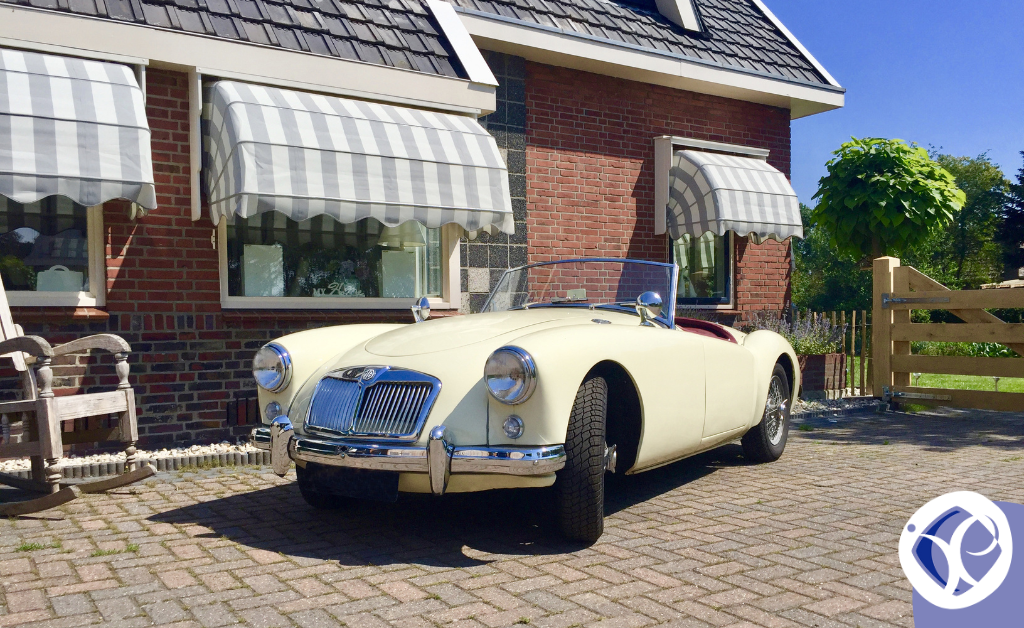Bangers and Cash isn’t just about classic British cuisine, but rather delving into the intriguing realm of classic car sales within a company structure.
Explore the financial and tax intricacies of selling high-value vehicles to a limited company, where strategic planning meets compliance.

(Read Time: Approx. 3 minutes)
Topics Discussed:
- Understanding tax implications of selling high-value classic cars to a limited company.
- Strategies for managing benefit-in-kind rules and potential tax liabilities.
What Happens When You Sell a Classic Car to Your Company?
Imagine owning a classic car, not just any car, but a high-end model worth a whopping £1m, originally purchased for £100,000.
Now, consider selling this vehicle to your limited company. Why? Well, there’s an intriguing tax angle here worth exploring.
The primary lure for such a sale is the potential capital gain of £900,000, which interestingly, might not be taxable due to an exemption under Section 263 of the Taxation of Chargeable Gains Act 1992.
This exemption applies to gains on disposals of “passenger vehicles.” Additionally, this manoeuvre could enable the extraction of £1m tax-free from the company, or it could be used to create a director’s loan account balance for future drawdown.
Sounds like a clever financial strategy, right? But wait, there’s more to this than meets the eye.
HMRC’s Stance on Benefit-in-Kind (BIK)
The complexity arises with the BIK rules linked to company cars, which come into play when a car is made available to an employee or their family (as per s.114 ITEPA 2003).
HMRC’s position on what constitutes “availability” is stringent.
They consider a car available for private use in scenarios where it might seem otherwise unavailable – like when a director is banned from driving, or the car isn’t taxed or insured.
Calculating BIK on Classic Cars
For classic cars, normal BIK computation rules based on list price and CO2 emissions don’t apply. Instead, the calculation is based on the car’s market value and engine size.
For a car over 2,000 cc with a value of £1m, the annual BIK could be as high as £370,000.
This would result in a substantial income tax charge, potentially negating the benefit of the initial tax-free gain.
Circumventing the BIK Dilemma
To sidestep these BIK implications, one would need to demonstrate to HMRC that the car is not “available” for private use.
HMRC would agree that a car is not “available” in the following circumstances:
- Upon sale, the car is set to be delivered by a professional transport service to a dedicated storage facility located at least 175 miles away.
- All keys to the car will be in the custody of the transport service.
- The car’s insurance coverage will be managed by the transport service and will not be under the company or Directors’ names.
- Insurance coverage for the car is for its time in storage, excluding road usage.
- For any repairs or maintenance, the car will be moved by the transport service.
Future Considerations and Next Steps
It’s important to consider the long-term implications when selling your high-value classic car to a company, particularly regarding the company’s status as a trading or investment entity.
This could affect eligibility for other tax reliefs linked to capital gains and inheritance taxes. Expert advice is crucial in navigating the complexities of capital gains and inheritance taxes.
At taxexpert.co.uk, our team is equipped to provide insightful guidance on these matters, ensuring your financial strategies are both legally sound and tax efficient.
Summary
Dealing with high-value assets like classic cars in a corporate context can be a tax minefield. If you’re contemplating such transactions, it’s vital to stay informed and seek expert advice.
Feel free to reach out to our team taxexpert.co.uk for tailored advice and guidance.
Contact us today at 01772 788200 to find out more about how we can help, or WhatsApp us out-of-hours at 07787 010190.
Sending an e-mail is simple too, just fill out this short form and we’ll get back to you!
Kind regards,
Ilyas Patel
